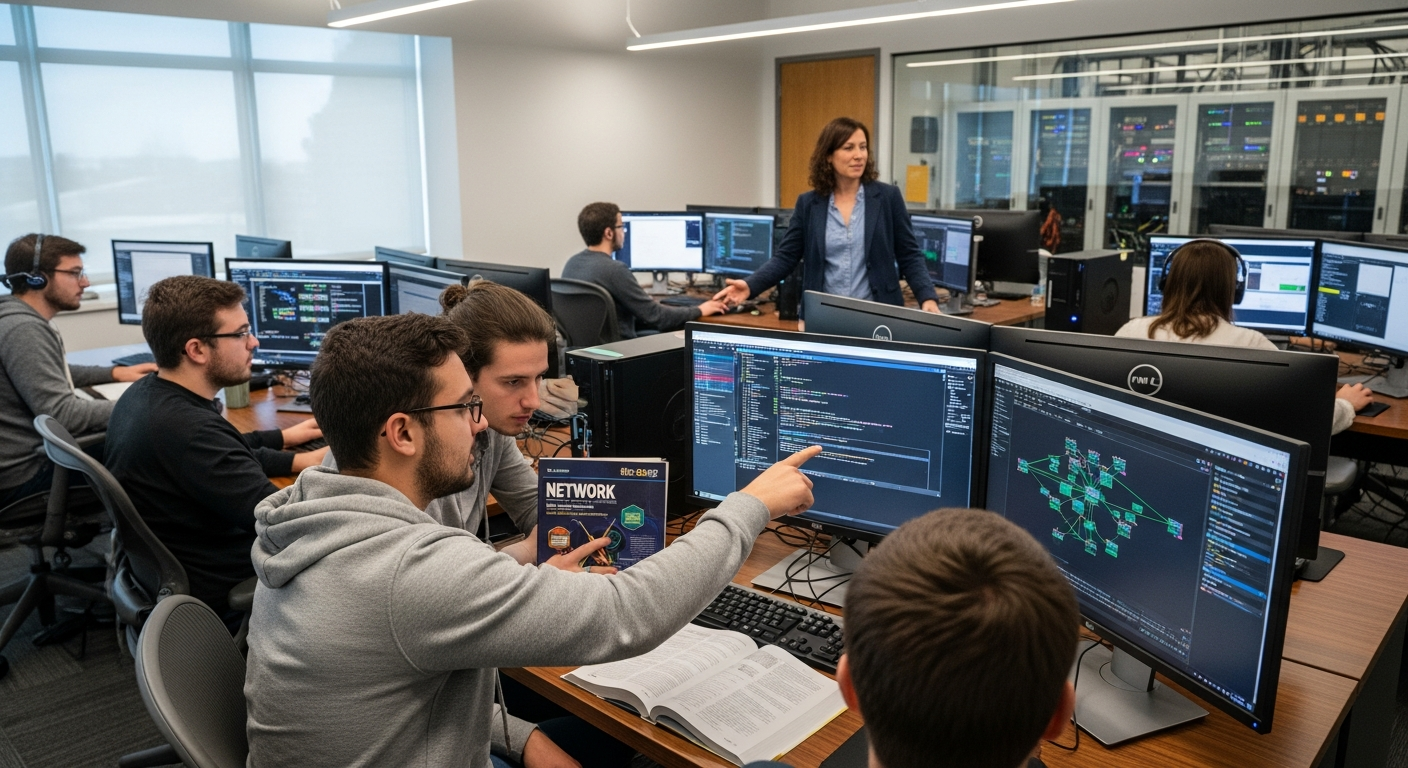Modern Recruiting Skills Development in Indonesia
The recruitment landscape in Indonesia has transformed dramatically with digital innovation and evolving workplace expectations. Modern recruiters need a comprehensive skill set that combines traditional human resources knowledge with contemporary talent acquisition strategies, data analytics capabilities, and cross-cultural communication expertise. Pursuing structured education in human resources provides professionals with the foundation to navigate these complexities while building careers in one of Southeast Asia's most dynamic job markets.

Indonesia’s growing economy and diverse workforce present unique opportunities for human resources professionals who understand modern recruiting practices. As organizations compete for skilled talent across archipelago provinces and metropolitan centers, the demand for educated HR practitioners continues to rise. Developing expertise through formal education enables recruiters to implement evidence-based hiring strategies, foster inclusive workplace cultures, and contribute strategically to organizational success.
Guide for online HR degree programs for modern recruiters
Online education has expanded access to quality human resources training for Indonesian professionals balancing work commitments with academic pursuits. Accredited programs typically cover recruitment fundamentals, employment law, organizational behavior, compensation management, and workforce planning. Many institutions offer flexible scheduling options that accommodate working professionals, with courses delivered through interactive platforms featuring video lectures, discussion forums, and collaborative projects. When evaluating programs, prospective students should verify institutional accreditation, review curriculum alignment with industry standards, and consider faculty expertise in contemporary HR practices. Some programs incorporate case studies from Indonesian companies, providing culturally relevant learning experiences that address local employment regulations and workplace dynamics.
Study human resources and build strong management skills
Human resources education develops critical management competencies that extend beyond recruitment functions. Core curriculum areas include strategic workforce planning, performance management systems, employee relations, and organizational development. Students learn to analyze workforce data, design training programs, navigate complex employment situations, and align human capital strategies with business objectives. Practical skill development often includes conflict resolution techniques, interview methodology, assessment center design, and employer branding strategies. Many programs emphasize soft skills such as emotional intelligence, cross-cultural communication, and ethical decision-making—capabilities essential for managing diverse teams in Indonesia’s multicultural work environments. Coursework frequently incorporates technology applications, including applicant tracking systems, human resource information systems, and analytics tools that modern recruiters use daily.
HR degree options for career advancement
Educational pathways in human resources vary to accommodate different career stages and professional goals. Bachelor’s degree programs provide comprehensive foundational knowledge suitable for entry-level positions or career changers seeking HR roles. These typically require three to four years of full-time study or longer for part-time students. Graduate programs, including master’s degrees in human resource management or business administration with HR concentration, offer advanced training for experienced professionals pursuing leadership positions. These programs often require one to two years and may include thesis or capstone project components. Certificate programs present shorter-term options for professionals seeking specialized knowledge in areas like talent acquisition, compensation analysis, or HR analytics without committing to full degree programs. Some institutions offer stackable credentials, allowing students to complete certificates that later count toward degree requirements.
Building practical recruiting expertise
Effective recruiter training combines theoretical knowledge with hands-on experience. Quality programs incorporate practical components such as mock interviews, recruitment campaign simulations, and internship opportunities with established organizations. Students develop proficiency in sourcing candidates through multiple channels, including professional networks, social media platforms, campus recruitment, and industry partnerships. Modern curriculum addresses employer branding strategies that attract quality candidates in competitive markets, applicant experience design that reflects organizational values, and selection methodologies that predict job performance while promoting diversity. Understanding Indonesian labor regulations, including employment contracts, working hour provisions, and termination procedures, remains essential for practitioners operating within the country’s legal framework.
Technology integration in modern HR practice
Contemporary human resources work relies heavily on technological tools that streamline processes and enhance decision-making. Educational programs increasingly incorporate training on applicant tracking systems that manage candidate pipelines, video interviewing platforms that expand geographic reach, and assessment technologies that evaluate skills objectively. Data analytics capabilities enable recruiters to measure recruitment effectiveness, identify hiring bottlenecks, and forecast workforce needs. Social media literacy has become essential as platforms like LinkedIn, JobStreet, and local Indonesian job boards serve as primary sourcing channels. Understanding artificial intelligence applications in resume screening, chatbot candidate engagement, and predictive analytics helps modern recruiters leverage technology while maintaining the human judgment necessary for cultural fit assessment and relationship building.
Career prospects and professional development
Human resources professionals in Indonesia work across diverse sectors including manufacturing, technology, financial services, hospitality, and government organizations. Career paths may progress from recruitment specialist roles to talent acquisition management, HR business partnership, or chief human resources officer positions. Professional development continues beyond formal education through industry certifications, conference participation, and ongoing learning about evolving employment practices. Networking with HR communities, both locally and internationally, provides access to best practices and emerging trends. As Indonesian businesses expand regionally and global companies establish operations within the country, bilingual HR professionals with cultural competence and modern recruiting skills find increasing opportunities to contribute meaningfully to organizational growth while advancing their own careers.
Conclusion
Developing modern recruiting skills through structured human resources education positions Indonesian professionals for meaningful careers in an evolving employment landscape. Whether through comprehensive degree programs, specialized certificates, or flexible online learning options, formal education provides the knowledge foundation, practical skills, and strategic perspective necessary for effective talent acquisition and workforce management. As organizations recognize human capital as their most valuable asset, well-trained HR professionals who combine traditional principles with contemporary practices will continue driving organizational success across Indonesia’s diverse economic sectors.




